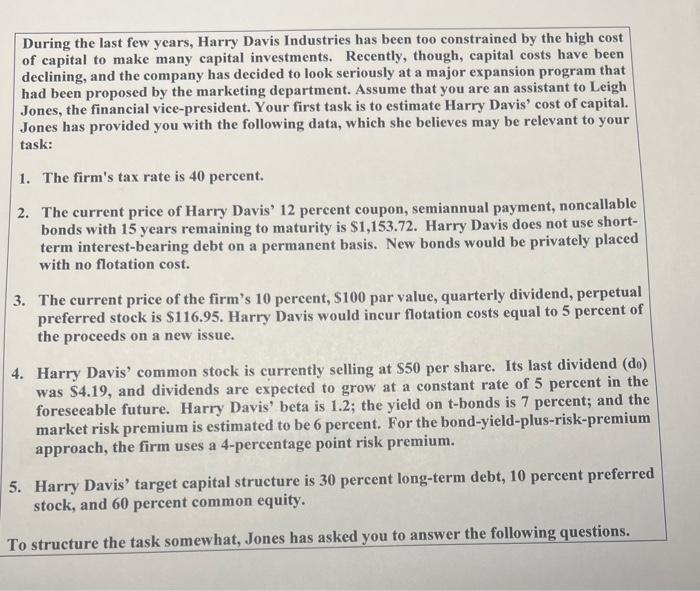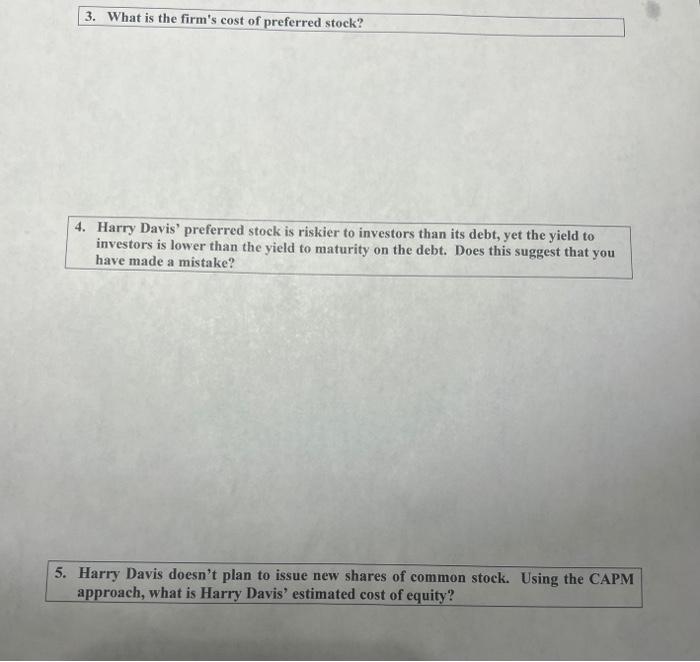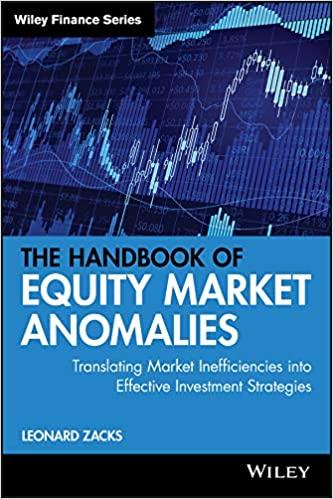please show steps without using excel so i can learn how to do it by hand!

During the last few years, Harry Davis Industries has been too constrained by the high cost of capital to make many capital investments. Recently, though, capital costs have been declining, and the company has decided to look seriously at a major expansion program that had been proposed by the marketing department. Assume that you are an assistant to Leigh Jones, the financial vice-president. Your first task is to estimate Harry Davis' cost of capital. Jones has provided you with the following data, which she believes may be relevant to your task: 1. The firm's tax rate is 40 percent. 2. The current price of Harry Davis' 12 percent coupon, semiannual payment, noncallable bonds with 15 years remaining to maturity is $1,153.72. Harry Davis does not use shortterm interest-bearing debt on a permanent basis. New bonds would be privately placed with no flotation cost. 3. The current price of the firm's 10 percent, $100 par value, quarterly dividend, perpetual preferred stock is $116.95. Harry Davis would incur flotation costs equal to 5 percent of the proceeds on a new issue. 4. Harry Davis' common stock is currently selling at $50 per share. Its last dividend (d0) was $4.19, and dividends are expected to grow at a constant rate of 5 percent in the foreseeable future. Harry Davis' beta is 1.2 ; the yield on t-bonds is 7 percent; and the market risk premium is estimated to be 6 percent. For the bond-yield-plus-risk-premium approach, the firm uses a 4-percentage point risk premium. 5. Harry Davis' target capital structure is 30 percent long-term debt, 10 percent preferred stock, and 60 percent common equity. To structure the task somewhat, Jones has asked you to answer the following questions. 4. Harry Davis' preferred stock is riskier to investors than its debt, yet the yield to investors is lower than the yield to maturity on the debt. Does this suggest that you have made a mistake? 5. Harry Davis doesn't plan to issue new shares of common stock. Using the CAPM approach, what is Harry Davis' estimated cost of equity









